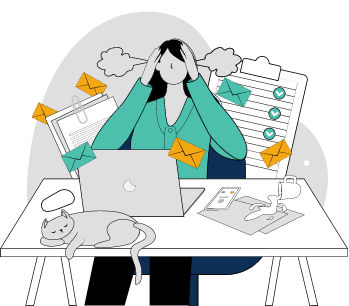Listen to this episode
On this episode
Do you ever find yourself questioning whether you’re on the right path? Or maybe you’re struggling to find meaning in what you do? So many of us feel like we are stuck in a neverending climb in our careers. Whenever you get to a point like this, it may be time to re-assess and reprioritise your life.
When faced with unwanted events, go back to your ‘why’ to discover how you can change your circumstance or perspective.
Dr Maddy Du Mont joins us in this episode to discuss how her COVID-19 experience changed her life away from clinical practice. Although difficult at first, her reprioritisation made her feel free and at peace. She shares questions that will help you find clarity on your priorities.
Change doesn’t require a life-changing event, nor does it have to turn your life upside down. It be can just simply changing your mindset and feeling at peace with your decisions.
If you want to know how to find peace and happiness in your life, stay tuned to this episode.
Show links
Connect with Maddy: Website
Get in touch and book a slot with us for live program courses of the Shapes Toolkit. Bookings are open for Autumn 2022, with only a few slots left for Spring 2022
Learn Brooke Castillo’s Self Coaching Model. You can also learn more by listening to her podcast, The Life Coach School.
Take these free assessments over at Values in Action. You can also profile your personality with 16 Personalities.
You can find Brene Brown’s various books here.
Episode highlights
How Maddy Coaches People
How COVID-19 Affected Maddy
How Weakness and Illnesses are Connected
We Need to Be Honest With Ourselves
What Drives You?
How to Prioritise
How Priorities Guide Decisions
Finding the Truth in Your Story
Change Doesn’t Always Require Difficult Events
Change Doesn’t Need to be Drastic
Maddy’s Tips
Episode transcript
Dr Maddy du Mont: It’s amazing how we can get stuck on the rat race, get stuck on the conveyor belt. And we just keep doing it because that’s what we’ve been doing and we keep climbing the ladder, keep climbing the ladder. We have so many different avenues of enjoyment and talent and often, you become more and more specialised as you get older through your career and you lose those other bits that make you and you lose that sight of who you are as a person and what it is that you do that makes it different.…










